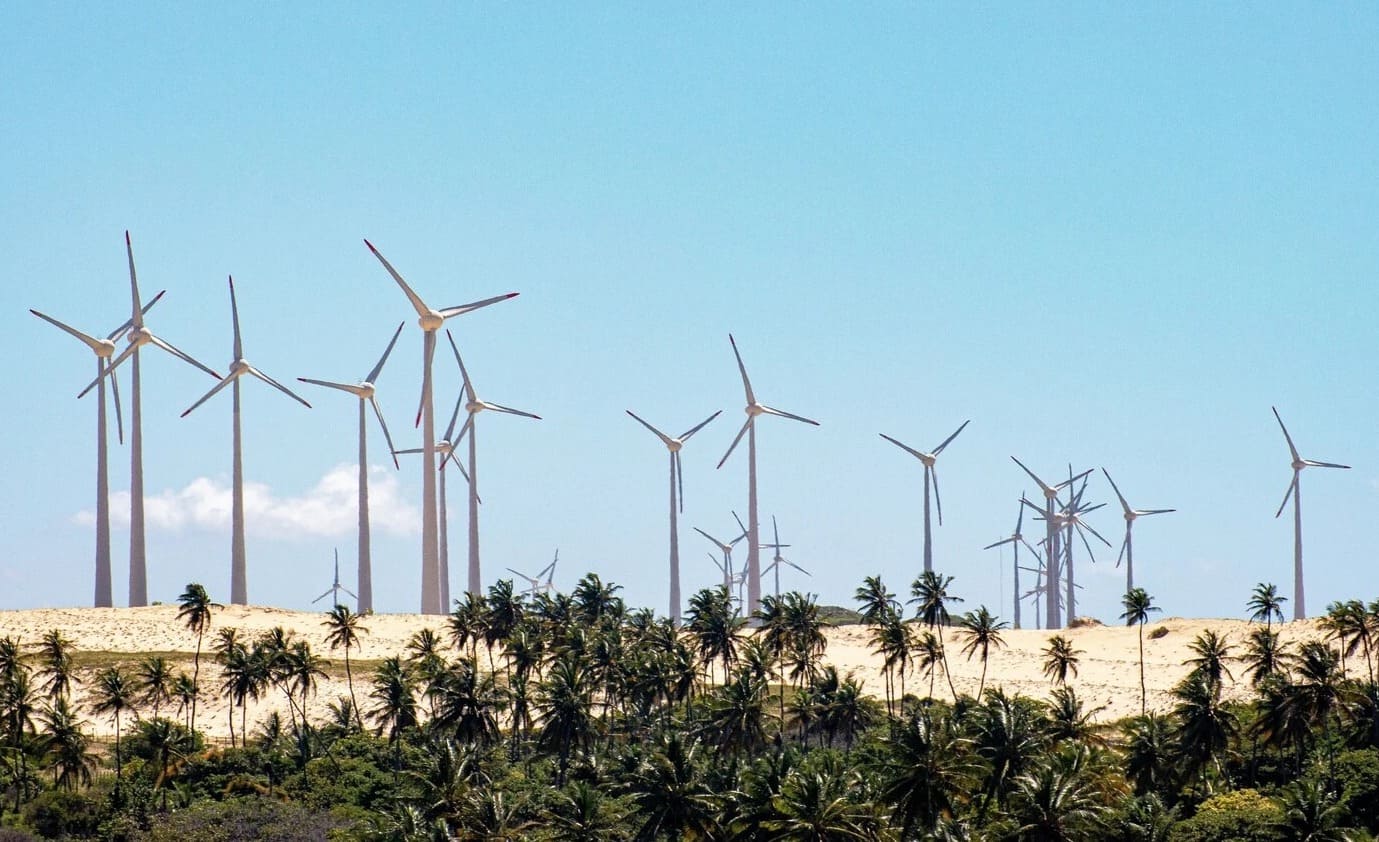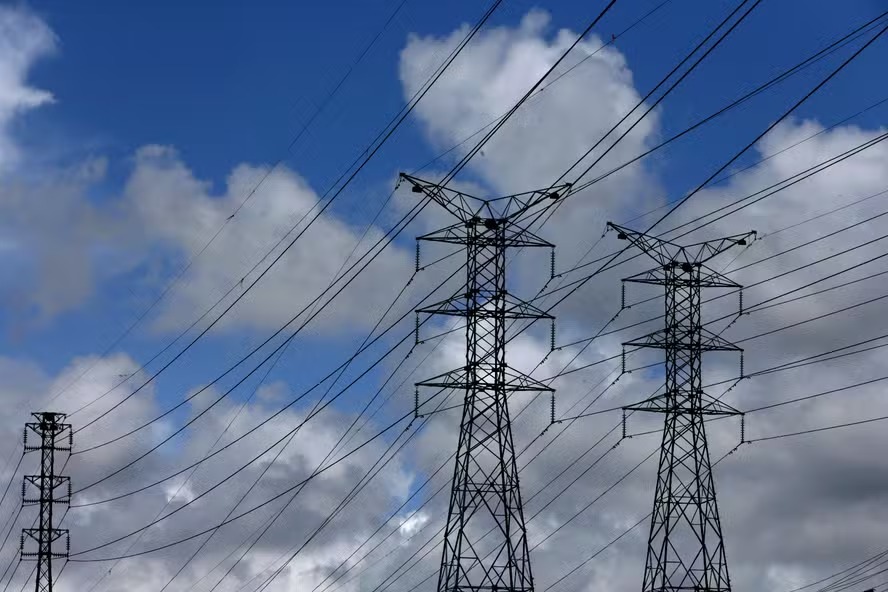How Brazil and Chile are leading Latin America's energy transition

Brazil and Chile emerged amongst the top 20 performers in the 2024 Energy Transition Index. - Unsplash/Victor Paladini
This article was first published in Portuguese by Valor Econômico.
- The World Economic Forum has launched its 2024 Fostering Effective Energy Transition Report, in collaboration with Accenture.
- The report uses the Energy Transition Index (ETI) to benchmark 120 countries on their current energy system performance, with a focus on balancing equity, environmental sustainability and security, and on their transition-readiness.
- Latin America and the Caribbean has shown slowest energy transition growth over the past decade. However, Brazil and Chile emerged amongst the top 20 performers in the 2024 index and Costa Rica and Colombia also well positioned.
As the world looks for solutions to limit global warming to 1.5°C by tackling global emissions through decarbonization, investments in infrastructure, and advancements in regulations, the energy transition landscape continues its course evenly in some regions, while unevenly in others.
The 2024 edition of the Fostering Effective Transition Report, launched by the World Economic Forum in collaboration with Accenture, points out that the top 10 performing countries on the energy transition account for only 1% of global energy-related CO2 emissions, 3% of total energy supply, 3% of energy demand and 2% of the global population.
Today, energy-related emissions contribute to over 80% of total global emissions. Finding ways to decarbonize industries and creating resilience through clean energy supplies, while making sure that the transition doesn't leave anyone behind, has never been more pressing.
The Forum's Fostering Effective Energy Transition Report, through the Energy Transition Index (ETI), benchmarks 120 countries' current energy system performance in terms of equity, environmental sustainability and security, and on their transition readiness - i.e. the extent to which a robust enabling environment can be created. The core components of an enabling environment include strong policy and regulatory framework and the ability to attract and deploy capital on a large scale. Key factors like a skilled workforce, innovation and robust infrastructure are also integral to this framework.
While European countries lead the ranking globally, Brazil and Chile feature as remarkable leaders ranking amongst the top 20 in this year's index.
The 2024 edition of the Fostering Effective Transition Report, launched by the World Economic Forum in collaboration with Accenture, points out that the top 10 performing countries on the energy transition account for only 1% of global energy-related CO2 emissions, 3% of total energy supply, 3% of energy demand and 2% of the global population.
Today, energy-related emissions contribute to over 80% of total global emissions. Finding ways to decarbonize industries and creating resilience through clean energy supplies, while making sure that the transition doesn't leave anyone behind, has never been more pressing.
The Forum's Fostering Effective Energy Transition Report, through the Energy Transition Index (ETI), benchmarks 120 countries' current energy system performance in terms of equity, environmental sustainability and security, and on their transition readiness - i.e. the extent to which a robust enabling environment can be created. The core components of an enabling environment include strong policy and regulatory framework and the ability to attract and deploy capital on a large scale. Key factors like a skilled workforce, innovation and robust infrastructure are also integral to this framework.
While European countries lead the ranking globally, Brazil and Chile feature as remarkable leaders ranking amongst the top 20 in this year's index.

Here's how Brazil and Chile are leading the energy transition in the Latin American and the Caribbean region:
Brazil and Chile move the needle
Emerging economies like China and Brazil, along with Chile-a new entrant in the top 20 ETI performers this year-are making significant strides in energy transition due to their sustained efforts over several years. Despite each country adopting a unique energy transition pathway, they share some common characteristics, including enhanced energy security through diverse energy and electricity mixes, an increase in renewables and increased share of clean energy in the fuel mix, carbon pricing mechanisms, and supportive regulatory environments that both drive and enable the energy transition.
According to the report, Brazil has ramped-up its renewable energy capacity and share of clean energy, largely driven by its long-term commitment to hydropower and biofuels, while also leveraging its solar and wind potential. Brazil's focus on planning and policy instruments and strengthening institutions has built the right ecosystem for energy transition momentum. The largest country in South America and the fifth largest nation in the world, Brazil has shown its commitment to transitioning to renewable energies for many years, and already consumes almost half of its energy (49%) from renewable sources.
Brazil currently holds the G20 presidency and emphasizes the social dimension of the energy transition, aiming for a fair and inclusive process. The country has been making strides towards an equitable transition through the Industrial Deep Decarbonization Initiative, a coalition of governments and industrial leaders seeking to decarbonize hard-to-abate sectors, such as cement, steel, aluminium and petrochemicals, while prioritizing social safety nets, community engagement and workforce reskilling.
Similarly, Chile generates 35% of its energy from solar and wind, a testament to its substantial infrastructure development and the emergence of a thriving renewable energy industry. This success is bolstered by enduring political support and active engagement from established companies committed to driving the country's clean energy agenda. The government has an ambitious goal of reaching 70% renewable energy consumption and becoming carbon neutral by 2050.

What's the progress of Latin America and the Caribbean in this transition?
While two regional players have entered the top 20 performers, the 2024 Fostering Effective Energy Transition Report reveals that Latin America and the Caribbean has seen the slowest growth over the past decade, with aggregate ETI scores increasing by only 3%. The region leads in the sustainability dimension, largely due to its reliance on hydropower and recent expansions in solar and wind capacity. However, this progress is offset by a surprising 70% decline in investment in renewables over the same period.
Costa Rica and Paraguay lead the sustainability dimension charts for 2024. Colombia ranking 35th is also among the strong performers on the global index. Yet, momentum in Latin America and the Caribbean has leveled off as these gains in sustainability are partially offset by declining equity due to rising gas and electricity prices.
Gas and electricity prices have remained high over the past 12 months compared to previous years, influenced by both foreign and local geopolitical and geoeconomic factors. The region's existing infrastructure needs significant expansion and better-connected grids to support the development, storage, distribution, and transmission of renewable energy. Addressing these infrastructure challenges is crucial for Latin America and the Caribbean to advance in the energy transition. The energy and human resource potential is there and good policies coupled with regional collaboration can help unlock the investments that are required to propel Latin America to a next level of energy transition benefiting the economies and people.
The global energy transition landscape
Globally, the pace of the energy transition has slowed down and balancing its key facets - equity, security and sustainability- remains a challenge. Achieving global energy targets requires international support tailored to country-specific needs, directing ample financing to emerging and developing economies and implementing forward-thinking policies in all nations to foster truly conducive investment conditions.
In 2023, global clean energy infrastructure investments rose to $1.8 trillion. However, 84% of these investments took place in advanced economies and China, showing that investments in most developing nations remain insufficient.
This year's report highlights that digital innovation, including generative AI present significant opportunities for the energy sector by boosting productivity, enhancing returns and improving talent availability. These innovations can unlock a new wave of investments. Nevertheless, as these technologies advance, the electricity needed for their computational demands will increase and must be managed through the adoption of more efficient AI models and clean energy sources.
As the world navigates the complexities of the energy transition, Brazil and Chile can offer valuable lessons and inspiration to neighbouring countries. Transforming how we produce and consume energy requires decisive action, fostering collaboration and supporting local economies. These steps are key to accelerating the journey towards an equitable, secure, and sustainable energy future. Learn more about the 2024 Fostering Effective Energy Transition Report here.
World Economic Forum
https://www.weforum.org/agenda/2024/07/brazil-chile-latin-america-energy-transition/


